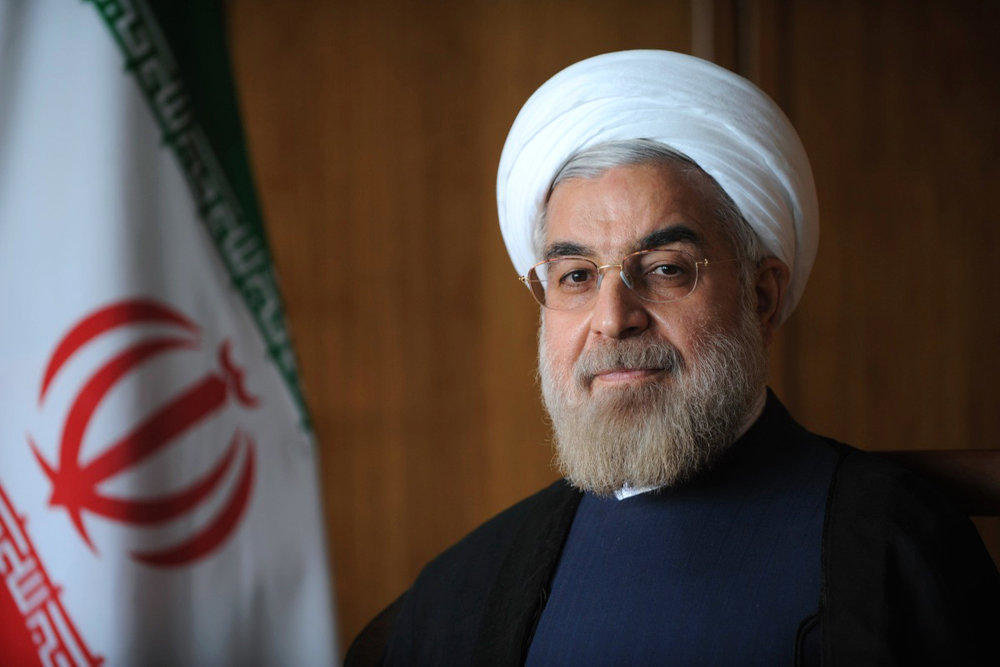Iran to respond to U.S. exit from nuclear deal on Wednesday

TEHRAN – In a televised and radio program on Wednesday, President Hassan Rouhani will announce Iran's retaliatory actions against the U.S. withdrawal from the 2015 nuclear deal, a source close to the supervisory board monitoring the JCPOA said on Monday.
According to the source, Iran will remove some limitations on its nuclear activities which had been suspended under the agreement, officially known as the Joint Comprehensive Plan of Action.
The measures will be within the framework of the JCPOA’s 26 and 36 articles and quitting the deal is not still on the agenda, the source said.
He said the move is also a response to the European Union which has failed to meet its obligations under the multilateral agreement.
The decision comes as Iran’s senior diplomat Ali Araqchi who helped craft the JCPOA announced over the past two days that Iran’s patience is running thin.
The Trump administration has not only quit the JCPOA - which is being endorsed by the UN Security Council - and introduced the toughest ever sanctions against Iran, it also announced on Friday that Washington will not renew two of sanctions waivers which allowed Russia and the European nations to do business with Tehran. One of the two waivers allowed Iran to store excess heavy water produced in the uranium enrichment process in Oman. The other one allowed Iran to swap enriched uranium for raw yellowcake with Russia.
However, according to sources, Iran is still insisting that the “door to diplomacy is open” and Iran’s gradual steps to remove cap on its nuclear program provide a “new opportunity for diplomacy so that the other side rectify the wrong path of unilateralism and return to the JCPOA and fully implement its obligations.”
Reportedly, Iran has informed the EU officials on its decision.
Following is the articles 26 and 36 of the JCPOA:
26. The EU will refrain from re-introducing or re-imposing the sanctions that it has terminated implementing under this JCPOA, without prejudice to the dispute resolution process provided for under this JCPOA. There will be no new nuclear related UN Security Council sanctions and no new EU nuclear-related sanctions or restrictive measures. The United States will make best efforts in good faith to sustain this JCPOA and to prevent interference with the realization of the full benefit by Iran of the sanctions lifting specified in Annex II. The U.S.
Administration, acting consistent with the respective roles of the President and the Congress, will refrain from re-introducing or re-imposing the sanctions specified in Annex II that it has ceased applying under this JCPOA, without prejudice to the dispute resolution process provided for under this JCPOA. The
U.S. Administration, acting consistent with the respective roles of the President and the Congress, will refrain from imposing new nuclear-related sanctions. Iran has stated that it will treat such a re-introduction or re-imposition of the sanctions specified in Annex II, or such an imposition of new nuclear-related sanctions, as grounds to cease performing its commitments under this JCPOA in whole or in part.
36. If Iran believed that any or all of the E3/EU+3 were not meeting their commitments under this JCPOA, Iran could refer the issue to the Joint Commission for resolution; similarly, if any of the E3/EU+3 believed that Iran was not meeting its commitments under this JCPOA, any of the E3/EU+3 could do the same. The Joint Commission would have 15 days to resolve the issue, unless the time period was extended by consensus. After Joint Commission consideration, any participant could refer the issue to Ministers of Foreign Affairs, if it believed the compliance issue had not been resolved. Ministers would have 15 days to resolve the issue, unless the time period was extended by consensus. After Joint Commission consideration – in parallel with (or in lieu of) review at the Ministerial level - either the complaining participant or the participant whose performance is in question could request that the issue be considered by an
Advisory Board, which would consist of three members (one each appointed by the participants in the dispute and a third independent member). The Advisory Board should provide a non-binding opinion on the compliance issue within 15 days. If, after this 30-day process the issue is not resolved, the Joint Commission would consider the opinion of the Advisory Board for no more than 5 days in order to resolve the issue. If the issue still has not been resolved to the satisfaction of the complaining participant, and if the complaining participant deems the issue to constitute significant non-performance, then that participant could treat the unresolved issue as grounds to cease performing its commitments under this JCPOA in whole or in part and/or notify the UN Security Council that it believes the issue constitutes significant non-performance.
NA/PA
Leave a Comment